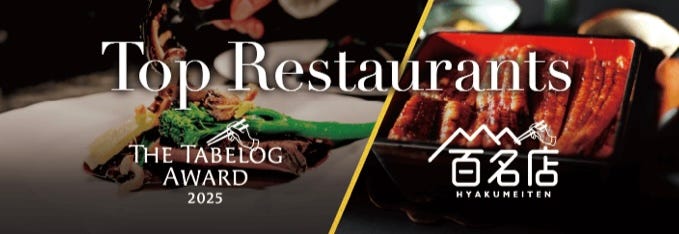Legacy Vegetarian Restaurants Are Leaving Us, As Other Choices Abound
You no longer have to go to a plant-based restaurant to eat vegetarian
Hello, and welcome to the last March issue of CulinaryWoman. April Fools Day is coming up this week, and we’ll begin shifting heavily into spring. For a lot of diners, it’s a favorite season when rhubarb, ramps, greens and the first strawberries begin to arrive.
I’m happy to see so many new subscribers! Please consider giving my posts a “like” if you’re enjoying them. You are more than welcome to become a paid subscriber and support the newsletter, or buy me a coffee.
That brings me to the topic of this newsletter: disappearing vegetarian restaurants.
Difficult Days For Vegetarian And Vegan Restaurants
At the end of February, Seva, a longtime staple in Ann Arbor, Mich., closed its restaurant in Detroit. It was an offshoot of the original Seva (pronounced Say-VAH) which opened in 1973.
In announcing the decision to close, Seva’s owners, Maren and Jeff Jackson, asked diners to support the remaining branch. They emphasized that they weren’t looking for pity, but if the restaurant meant something to them, they hoped customers were come in and eat.
The appeal came at a time when vegetarian and vegan restaurants are facing a tough time across the United States.
Last fall, Veg News published a roll call of plant-based places that had shut their doors.
They included three in Los Angeles — Nic’s on Beverly, Flore and Hart House. Also closed: Blossoming Lotus in Portland, Oregon, the Organic Grill in New York’s East Village, and The Grasshopper in suburban Boston.
Veg News calculated that NYC had seen the most closures, falling by 41 plant-based places since 2022. Portland lost 15 and Los Angeles lost 13.
Given that so many people are focusing on clean eating, and cutting way back on meat in an effort to reduce carbon, you might wonder why this is happening.
Vegetarian and vegan restaurants suffer from the same issues as other places, such as high rents, higher costs for ingredients, increased costs for staff, especially in California, and supply chain issues.
But they have two additional hurdles to overcome, and the primary one is competition.
From few choices to many
Back in the 1970s, when Seva and many legacy vegetarian restaurants opened, there were almost no alternatives for people who did not want to eat meat. American restaurants, especially steakhouses, touted the prime ingredients that they could serve, which were often much better quality than home cooks could obtain.
Going out for a meal meant going out for meat — unless you chose a vegetarian restaurant. Places like the Moosewood Cafe in Ithaca, N.Y., became draws for locals and visitors alike. Seva, for its part, benefited from a mix of college students, faculty, locals and people swinging through Ann Arbor who were looking for vegetarian choices.
For many years, it occuplied a mid-century modern building steps from central campus, until it moved to a shopping mall in 2014. I still think of its original location as the Seva building.
But when it comes to vegetarian fare, Ann Arbor and indeed, any city of any size has restaurants with ample choices beyond meat.
International cuisines, such as Japanese, Korean, Thai, Middle Eastern and African offer numerous options where meat is not on the plate.
The greater your population of immigrants and first-generation Americans, the more likely you are to find restaurants serving vegetarian menu items, even if they also serve meat.
In many cultures, meat is an ingredient — even a topping — rather than a main dish. Since it’s secondary, it can be omitted without affecting the central dish.
There’s also a perception that vegetarian restaurants are supposed to be less expensive than their meat-serving counterparts. After all, vegetables generally do not cost as much as prime cuts of meat, and you can stretch veggies in stews, soups and even main dishes like stir fries.
Of course, top quality produce can be costly, as grocery shoppers know, and many vegetarian restaurants are also supporting the farmers who supply them, versus buying from commercial vendors.
Top dollar versus affordable
But it can take a real effort to convince customers to pay top dollar for vegetarian cuisine. In New York City, Eleven Madison Park initially received push back in 2021 when it transitioned to a completely plant based menu. The price is $365 for an eight course meal, or $285 for five courses.
In Paris, L’Arpege is known world over for its vegetarian menu, including vegetables personally selected by chef Alain Passard. Dinner there is in the same price range, and a special spring menu costs $474.
From a more down to earth prospective, several restaurant groups have made innovative vegetarian food their focus. In Detroit, Ohio and Illinois, Neehee’s restaurants offer vegan-friendly Indian and Chinese food.
Meanwhile, Flour Child has expanded from its original location in Phoenix to 15 different states. Its menu is heavily plant based although guests can add turkey, chicken, seafood and steak to their veggie choices. And, Sweetgreens focuses on salads, grains and vegetables, although it too, offers several types of protein.
These chains are great news for plant-focused diners, but it puts pressure on the venerable places like Seva to stay relevant. Hopefully, their loyal customers are stepping up.
In China, Restaurants Are Failing At A Fast Clip
Nearly three million restaurants, cafes and banquet halls in China failed during 2024, according to a survey by Hongcam, an industry website. The failures are taking place at all price levels and types of service, from Michelin starred restaurants to local spots.
Among the hardest hit are milk tea shops, what we might think of as boba shops. Multiple chains, including Taigai, Jixu Fresh Fruit Coffee and Thank You Tea, closed stores.
According to Radio Free Asia, the tea chain Cuonei Village slashed its stores from nearly 500 across more than 80 Chinese cities to less than 50 stores by early December, while Fu Xiaotao and Yuan Zhenzhen Milk Tea have dropped from more than 300 stores apiece to just a handful.
The primary issue is the flagging Chinese economy. While people once spent freely on treats, economic contraction is prompting some to cut back on such treats.
In some major cities, such as Shanghai, 10 to 15% of restaurants are closing each month. A restaurant China, has an average lifespan of only 500 days, while the average in Beijing is just one year.
Japan’s Hottest Instagram Restaurant Review Site
It isn’t as well known as Guide Michelin — yet. But Japan’s hottest restaurant review site is picking up followers and clout. Tabelog has become the place to go for user reviews and to make reservations.
The website, which is available in English, lists 875,000 different places in Japan, and asks reviewers to assess stars based on quality, atmosphere, and value for the money.
Of its most popular restaurants, five are in Tokyo, three are in Kyoto and two are in Osaka. Favorite cuisines are sushi, grilled meat, tempura, steak and tempura. But, virtually every kind of food is reviewed on Tabelog.
If you are planning a trip to Japan, or just want to gaze at photos of delectable food, check it out.
Two Entertaining — And Emotional Podcast Episodes
My friend Michele Norris is back with the second season of her award-winning podcast, Your Mama’s Kitchen. I was delighted to hear two of my favorite people talking with her.
Michele hosted Dan Pashman, host of The Sporkful podcast, the author of the Everything’s Pastable cookbook, and the creator of Cascatelli pasta.
She also welcomed Wendell Pierce, the legendary actor from New Orleans, who spoke movingly about his mother and the dishes she liked to cook. Incidentally, the okra recipe that he mentions is in the Treme cookbook (I have a copy if you’d like me to send the recipe to you).
Your Mama’s Kitchen is a wonderful podcast to listen to while you’re cooking — or if you just need a break from everything that’s swirling around us. It’s bound to bring up memories for you, too.
Keeping Up With CulinaryWoman
Last week, my friend Ann Thomas, an executive producer at Detroit’s WJR radio, invited me to be a guest on her podcast, Women Who Lead. Then she gave me a big surprise: I’ve been named one of 12 Women Who Lead honorees for 2025. We’ll be honored at an event in Detroit this fall. I’m extremely flattered and glad that my observations have been of value. Thank you, Ann!
I wrote for Food & Wine about growing concerns regarding food safety. Last year, foodborne illnesses skyrocketed in the United States. There have already been outbreaks and food recalls in 2025. Unfortunately, the White House has terminated two key food safety committees. Be cautious about what you are consuming.
The Lions, Towers & Shields podcast looked at a fascinating 1936 film, Fury, starring Spencer Tracy and Sylvia Sidney. It was the begining of both stars’ careers and the subject matter of a man wrongly accused in murder remains relevant decades later .
I’ll be back tomorrow for paid subscribers with a new food trend that I’m not so sure about. On the other hand, it’s something a lot of us might admit to doing.
Feel free to get in touch with me at culinarywoman (at) gmail dot com or reply to this newsletter.
Thanks and see you soon!









I'm trying to catch up with my "Promotions" email Inbox (it's a scary place...), including reading your past newsletters, and finally got to this one. CONGRATULATIONS on your nomination! That's terrific! Applause, applause!!!
Congrats on the honor Micki!! Well deserved!